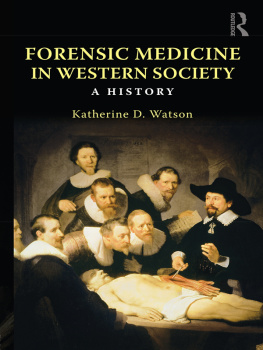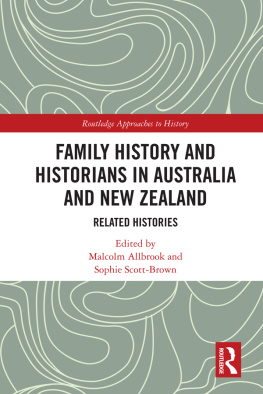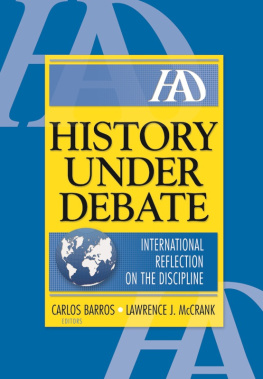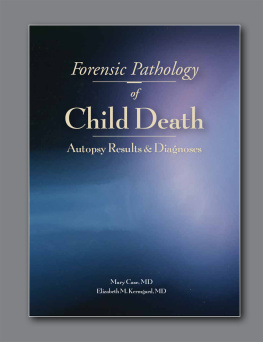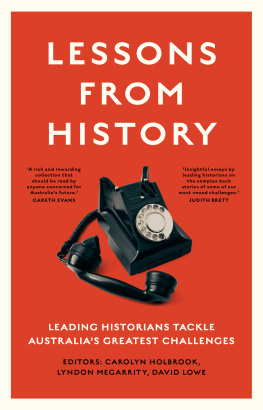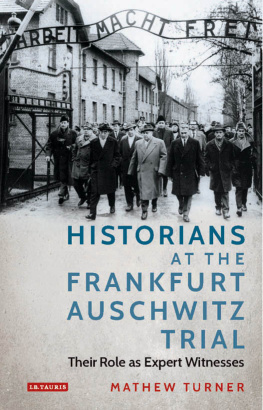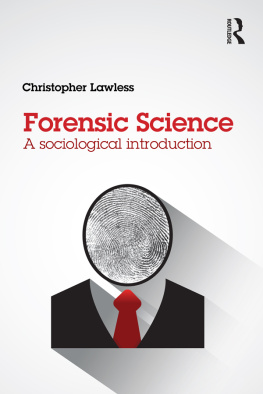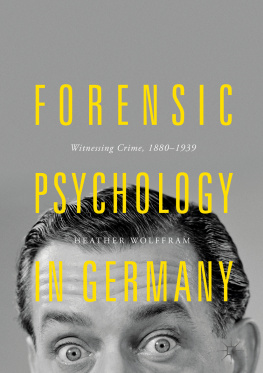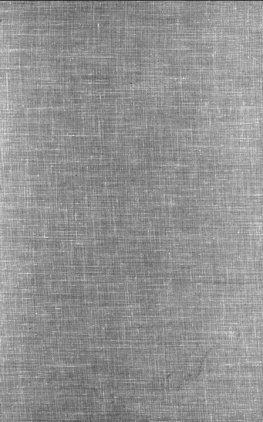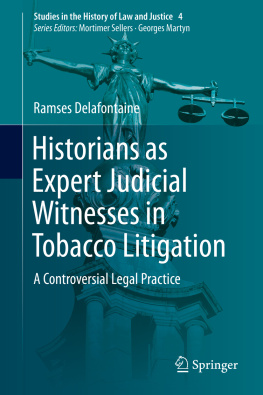
The Emergence of Historical Forensic Expertise
This book scrutinizes the emergence of historical forensic contribution in some of the most important national and international legal ventures of the last century. It aims to advance the debate from discussions on whether historians should testify or not toward nuanced understanding of the history of the practice and making the best out of its performance in the future.
Vladimir Petrovi is a Senior Researcher at the Institute for Contemporary History in Belgrade, Serbia.
Routledge Approaches to History
For a full list of titles in this series, please visit www.routledge.com
11The Struggle for the Long-Term in Transnational Science and Politics
Forging the Future
Edited by Jenny Andersson and Egl Rindzeviit
12A New Type of History
Fictional Proposals for dealing with the Past
Beverley Southgate
13Beyond Memory: Silence and the Aesthetics of Remembrance
Edited by Alexandre Dessingu and Jay Winter
14The Soviet Past in the Post-Socialist Present
Methodology and Ethics in Russian, Baltic and Central European Oral History and Memory Studies
Edited by Melanie Ilic and Dalia Leinarte
15Theoretical Perspectives on Historians Autobiographies
From Documentation to Intervention
Jaume Aurell
16How History Works
The Reconstitution of a Human Science
Martin L. Davies
17History, Ethics, and the Recognition of the Other
A Levinasian View on the Writing of History
Anton Froeyman
18The Historiography of Transition
Critical Phases in the Development of Modernity (14941973)
Edited by Paolo Pombeni
19The Emergence of Historical Forensic Expertise
Clio Takes the Stand
Vladimir Petrovi
The Emergence of Historical Forensic Expertise
Clio Takes the Stand
Vladimir Petrovi
First published 2017
by Routledge
711 Third Avenue, New York, NY 10017
and by Routledge
2 Park Square, Milton Park, Abingdon, Oxon OX14 4RN
Routledge is an imprint of the Taylor & Francis Group, an informa business
2017 Taylor & Francis
The right of Vladimir Petrovi to be identified as author of this work has been asserted in accordance with sections 77 and 78 of the Copyright, Designs and Patents Act 1988.
All rights reserved. No part of this book may be reprinted or reproduced or utilised in any form or by any electronic, mechanical, or other means, now known or hereafter invented, including photocopying and recording, or in any information storage or retrieval system, without permission in writing from the publishers.
Trademark notice: Product or corporate names may be trademarks or registered trademarks, and are used only for identification and explanation without intent to infringe.
Library of Congress Cataloging-in-Publication Data
Names: Petrovic, Vladimir, 1979 author.
Title: The emergence of historical forensic expertise : Clio takes the
stand / By Vladimir Petrovic.
Description: New York : Routledge, 2016. | Includes bibliographical
references and index.
Identifiers: LCCN 2016034241 (print) | LCCN 2016034394 (ebook) |
ISBN 9781138690646 (alk. paper) | ISBN 9781315536828
Subjects: LCSH: Forensic historians. | Evidence, Expert. | Evidence
(Law) | Historiography.
Classification: LCC K2290.H57 P48 2016 (print) | LCC K2290.H57
(ebook) | DDC 347/.067dc23
LC record available at https://lccn.loc.gov/2016034241
ISBN: 978-1-138-69064-6 (hbk)
ISBN: 978-1-315-53682-8 (ebk)
Typeset in Sabon
by Apex CoVantage, LLC
Contents
Part I
Inceptions: Preconditions for the Emergence of Historical Forensics
Part II
Improvisations: Experimenting with Historical Forensic Contribution
Part III
Intersections: The Institutionalization of Historical Forensic Expertise
My passion for studying the past transformed into reflective historiographical thinking gradually and under multiple influences. The initial impetus to think about the social role of historians came from my first mentor Andrej Mitrovi, and my brother Ljubomir Petrovi, who are sadly no longer among us. Further stimulus appeared during the course of my studies at Central European University, where I developed an interest in the role of historians in dealing with the atrocious past, prompted by Sorin Antohi and Balzs Trencsnyi. This interest was chanelled into a doctoral project through the the inspiring mentorship of Istvn Rv, as well as the collegial support of Maria Falina, Simina Radu-Bucurenci, Bogdan Iacob, Ferenc Lacz, Zsofia Lorand, Katalin Straner and Marko Zubak. Taking the reverberating advice of my supervisor, I proceeded to investigate the topic from the inside, interning and working in the War Crimes Prosecutors Office in Serbia, as well as at the International Criminal Tribunal for the former Yugoslavia. Among people working either in it or on it, Predrag Dojinovi, Barbora Hola, Christian Nielsen, Novak Vuo, and Richard Wilson were of huge help. I also happily acknowledge the intellectual debt to Nanci Adler, Berber Bevernage, Enrico Corniani, Ramses Delafontaine, Nenad Dimitrijevi, Norbert Frei, Morgan Kousser, Diana Mishkova, Werner Renz, Dubravka Stojanovi, and Renata Uitz, who challenged me to explore different aspects of the historical profession. The Institute for Contemporary History in Belgrade enabled me to profess it, as my colleagues, particularly Mladen Ackovi, Dragan Bogeti, Dragomir Bondi, Sran Cvetkovi, Vladimir Ivanovi, Predrag Markovi, Kosta Nikoli, Ivana Panteli and Momilo Pavlovi, showed exceptional understanding for my prolonged research abroad. Turning this research into a book was finalized within the project Understanding the Age of Transitional Justice of the NIOD Institute for War, Holocaust and Genocide Studies of the Royal Netherlands Academy for Arts and Sciences. Nanci Adler, NIODs head of research, along with Ugur mit ngr and Thijs Bouwknegt, transformed that process into pure pleasure. Jura Avizienis skillfully proofread the manuscript, which was carefully edited by Max Novick and Jennifer Morrow, but could not have been completed without the steady support of Ashley Mears and a motivating presence of our newborn Nola.
Is there a place for the historian in a courtroom? The subject generates heated, albeit disconnected debates characterized by all-too-quick and decisive responses, affirmative as well as dismissive. Opinions are equally divided among practitioners. A historian? In my courtroom? The judge in Belgrade was staring at me, genuinely bewildered. Who ever heard of such a thing? His colleague, a prosecutor at The Hague, was musing at length about the merits of historical expert testimony, even claiming that he personally introduced this innovation into international criminal law. Although my interlocutors differed sharply over the role of historical forensics, they were equally in the dark about its evolution. This struck me as strange, given that historians actively participated in some of the most important legal ventures of the last century, from the Dreyfus case to the Miloevi trial. However, as their contribution remains obscured and controversial, I grew convinced that a monographic overview of the evolution of historical expert witnessing is in order. Therefore, shedding some light on the neglected history of historical expert witnessing is a principal theme of this book. Its aim is to advance the discussion, in hope that nuanced understanding of this practices past could improve its future courtroom manifestations.


